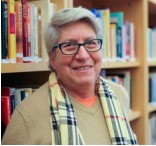ADD THESE DATES TO YOUR E-DIARY OR GOOGLE CALENDAR
This site is part of the Siconnects Division of Sciinov Group
This site is operated by a business or businesses owned by Sciinov Group and all copyright resides with them.
ADD THESE DATES TO YOUR E-DIARY OR GOOGLE CALENDAR

University of California, United States
Title:Queer & Communist in the United States: Betty Millard (1911-2010 & Lorraine Hansberry (1930-1965)
Although it feels counter-intuitive, the U.S. Communist Party banned gays and lesbians from membership beginning in 1938, classifying us as “degenerates.” The ban became more explicit and more adamant over time so that from the 1950s until the ban ended in 1991 Party resolutions sometimes reflected the most bigoted, stereotypical language to describe us, indistinguishable from the most vicious homophobia on the Right. Inspite of the 60 year ban individual queer members of the Communist Party made astonishing contributions to LGBT liberation, women’s liberation, antiracist organizing, and African American and African liberation movements. Queer Communists were teachers, artists, poets, playwrights, composers, journalists, social workers, union and community organizers. This queer presence is an essential part of Communist and radical history in the United States, although historiography, even by progressive and radical historiansalmost never acknowledge this. Based on ten years of archival research, and at times calling up my own history in the Party between 1962 and 1981 this paper tells two of the stories, focused on the life of Betty Millard, and Lorraine Hansberry. Millard was a charismatic, energetic, and immensely creative activist, writer, journalist, poet, and photographer.
While an editor at the New Masses, the Party’s cultural magazine with a circulation in the tens of thousands she wrote a widely circulated essay (republished as a pamphlet) Woman As Myth among the firstever written Marxist-feminist manifestos. She was the U.S. representative to the Women’s International Democratic Federation 1949-1951, based in Paris. Later, resettled in New York
in the mid- 1950s she edited the anti-imperialist monthly journal Latin America Today. Lorraine Hansberry was a journalist, poet, playwright whose most famous work, A Raisin in the Sun was the first play by an African American woman ever produced on Broadway, opening in March 1959 with a star-studded cast and to rave reviews. In the early 1950s Hansberry was assistant editor of the news journal Freedom published by Paul Robeson, and was an integral member of the Harlem-based Black Communist intelligentsia that included W.E.B. Du Bois (with whom she studied), Shirley Graham Du Bois, and Louise Thomson-Patterson with whom she organized and reported on the African American women’s initiative, “Sojourners for Freedom.”
These Black women descended on Washington, D.C. in 1951 seeking redress from the unmitigated violence against Black people especially in the South. James Baldwin and Nina Simone were among her other most significant friendships. In her all-to-brief brief life Hansberry wrote multiple plays, essays, and poems in brilliant, passionate illuminations of liberation that embraced all
peoples, including gay people, in all ways.
Bettina Aptheker is Distinguished Professor Emerita, Feminist Studies Department at the University of California, Santa Cruz (UCSC). A scholar-activist Bettina co-led both the Free
Speech Movement at the University of California, Berkeley 1964-65, and the National United Committee to Free Angela Davis (1970-1972). Bettina began teaching in the Women’s Studies program at the University of California, Santa Cruz in 1981 and helped to build it into one of the leading Feminist Studies departments in the country. In 2019 Bettina launched an online course, Feminism & Social Justice. As of now over 127,000 people have taken the course across the globe. Bettina’s two most recent books are Intimate Politics: How I Grew Up Red, Fought for Free Speech & Became a Feminist Rebel (2006). Communists in Closets: Queering the History, 1930s-1990 (2023)